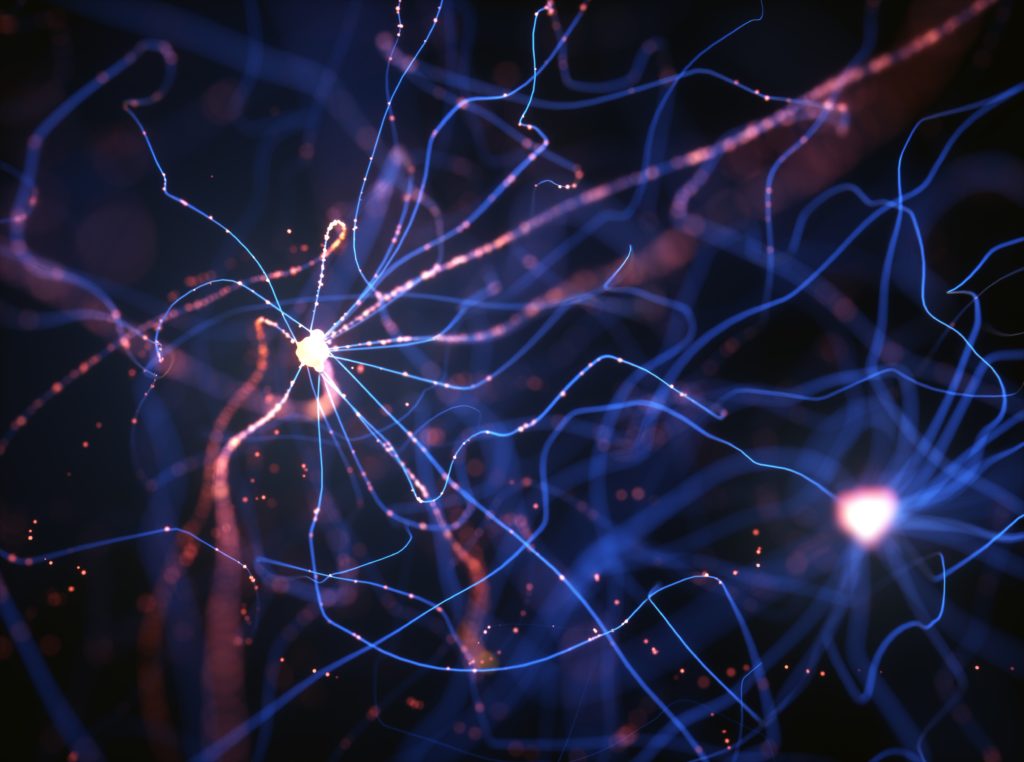Quick Hits
Daily brief research updates from the cognitive sciences

There are different types of dark matter in the brain. Matter that is often little researched or unknown to different population groups. I have written previously about glial cells and their contribution to just about everything, something neuroscientists know a lot about, to electrical neurons, that have been vastly under researched.
But now some researchers have made some discoveries in another area, and that is that of silent synapses. Synapses are the connections between your brain cells. The current understanding is that as you learn, develop new skills, synapses connect, and strengthen and build the networks in your brain – this is how your brain is continually growing and changing. However, these would always be part of a network. Silent, inactive synapses have been seen in the brains of developing mice so it was thought they played a key role in the developing brain but not in adults.
However, in an unexpected discovery MIT researchers have found silent synapses at levels 10 times higher than expected. The researchers were not actually looking for silent synapses but trying to measure neurotransmitter receptors on the branches of neurons. Some of these branches and connections, known as filopodia, are extremely fine and small and are difficult, or impossible, to see with standard imaging techniques.
On discovering these in such high quantities they then proceeded to investigate whether they were indeed silent synapses by attempting to stimulate these with a combination of a neurotransmitter and an electrical stimulus. They found that indeed these were silent but could grow into active synapses much quicker than by altering mature synapses.
That’s good news and this explains how we can learn things quicker – having silent synapses allows rapid learning and being able to build new memories without building whole new synapses.
Whether this is different between different people is another question – but I am hoping I have a bunch of silent synapses waiting to spring into action when I engage with new material – such as writing this article – go silent synapses, go!

Andy Habermacher
Andy is author of leading brains Review, Neuroleadership, and multiple other books. He has been intensively involved in writing and research into neuroleadership and is considered one of Europe’s leading experts. He is also a well-known public speaker, speaking on the brain and human behaviour.
Andy is also a masters athlete (middle distance running) and competes regularly at international competitions (and holds a few national records in his age category).
References
Vardalaki, D., Chung, K. & Harnett, M.T.
Filopodia are a structural substrate for silent synapses in adult neocortex.
Nature, 2022
DOI: 10.1038/s41586-022-05483-6
More Quick Hits
Brain Scans Can Predict Your Political Affiliation
Quick HitsDaily brief research updates from the cognitive sciences rain scanning of political partisans is not new and it has long been reported that brain scans can predict political affiliation. But those studies were scans of political partisans...
Children with Same-Sex Parents Are Socially Well-Adjusted
Quick HitDaily brief research updates from the cognitive sciences his is not the first study to report that children of same-sex parents are well adjusted, there are plenty, but it is one of the first to be representative and hence gives some...
Simple Exposure to New Things Makes Your Brain Ready to Learn
ouldn’t it be great if we could learn things with no effort? Well, actually we often do, and children learn vast quantities of information, and knowledge with little to no effort – think of how well we learn languages which become fiendishly...
So, Can Cranberries Improve Memory?
tend to be hesitant to report on studies of single foods doing amazing things (because many do), but this piece of research still caught my eye. So, what did this group of researchers from the University of East Anglia find? Well, they...
The Real Problem with Social Media: It Induces Dissociative States
Quick HitsDaily brief research updates from the cognitive sciences ocial media seems to hijack our brains – or at least according to popular narratives. Most of us have experienced this where you get stuck in an endless stream of content,...
Adventurous Play Boosts Mental Resilience in Kids
o, a simple cheap way to help your kids improve all life skills and strengthen mental wellbeing. Too good to be true? Well, this piece of research, just out, finds a fascinating correlation with mental health and kids. This correlation was...






